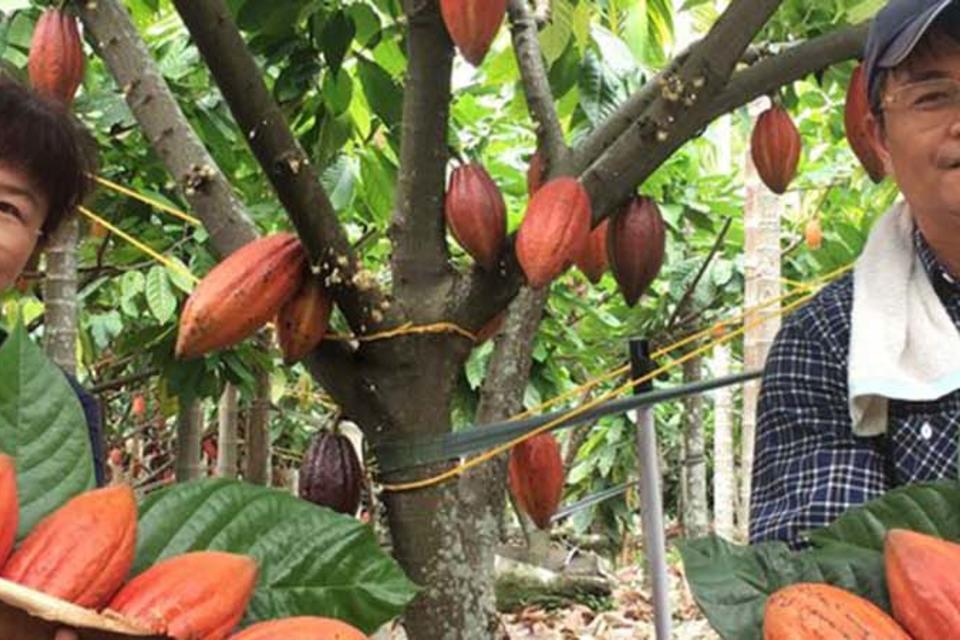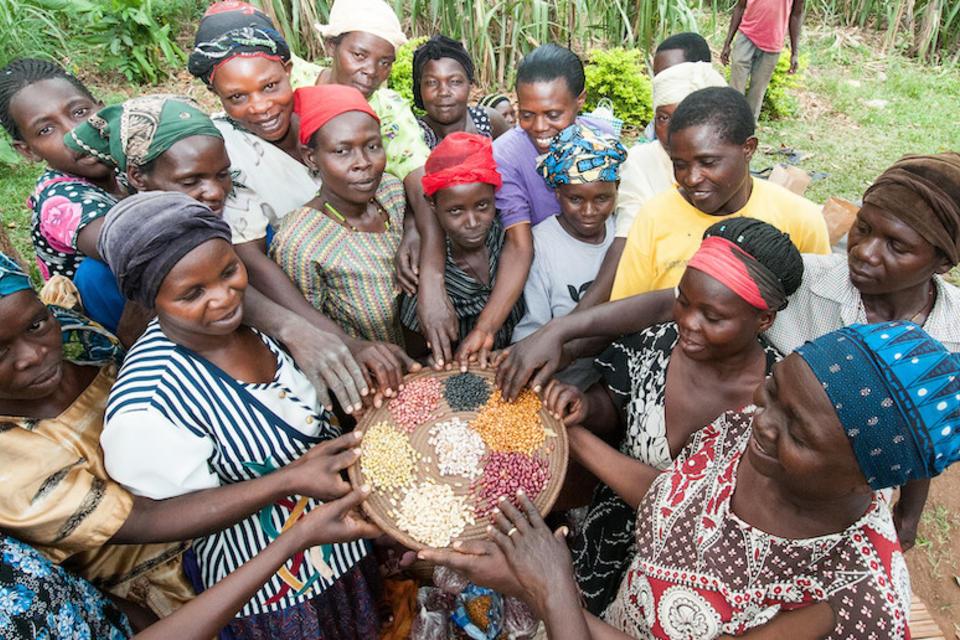From the Field A sweet business in the Brazilian Amazon
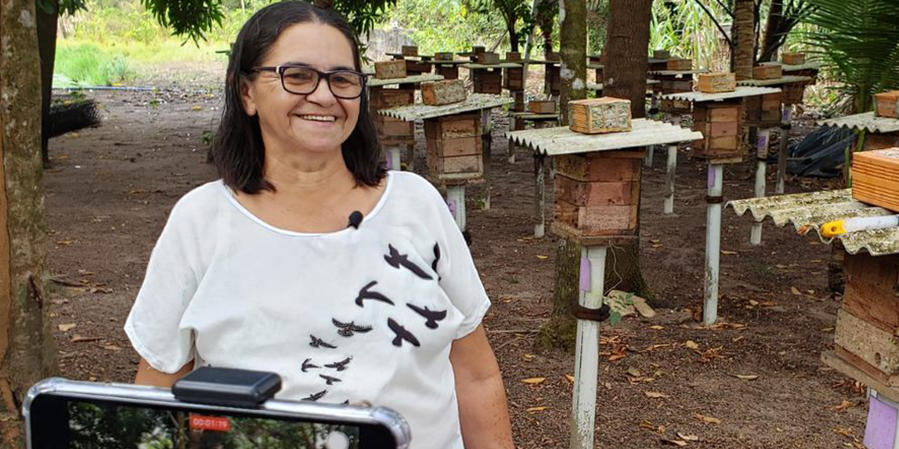
Over 100 beekeeping households in the Brazilian Amazon produce honey, which they sell to the Peabiru Institute. In addition to receiving extra income to sustain their livelihoods, these communities are promoting the conservation of forests through the pollination of native vegetation, which in turn generates other ecosystem services. Peabiru is one of the partners from the Partnership Platform for the Amazon (PPA), an initiative led by the private sector in Brazil, funded by USAID, and implemented by the Alliance of Bioversity and CIAT with support from local partners.
In the heart of the Amazon – Northern Brazil, the municipality of Curuçá, state of Pará – is the home of Marussa de Macedo, a retiree who proudly describes herself as a defender of nature. She has been producing honey for several years, along with another one hundred households from the municipalities of Pará and Amapá dedicated to this sweet business.
Ten years ago, Marussa had already undertaken her first great challenge: restoring the piece of land she had inherited from her grandparents. It was abandoned and did not produce any fruit. But the studies she had pursued in environmental care were enough for her farm, Açai, to become green again with crops such as lemon, passion fruit, banana, coffee, and pitaya, which would help her enjoy life as a retiree. Marussa wanted to explore a new endeavor: beekeeping. But her lack of experience caught up with her, and the bees from the genus Apis (African stinging bees) failed to thrive. A neighbor talked to her about native stingless bees. She replaced the overalls, the veil, and the gloves she had acquired to protect herself from the African bees with three boxes of native melipona bees.
On one side of her farm, Marussa has over 120,000 lodgers producing around 30 kg of honey a year. At present, she has 40 boxes inhabited by bees, which come and go about their business as if they own the place. The bees leave their rustic boxes underpinned by 1-m easels to feed themselves. Marussa discovered that her bees enjoy urucú (annatto) and pitanga; so she planted these kinds of shrubs and other native species around the hive to pamper her bees. In addition to fulfilling their important role in crop pollination, the bees collect nectar from flowers and, upon returning to their hives, transform it into a juicy transparent honey that Marussa sells, obtaining an extra income to sustain her livelihood.
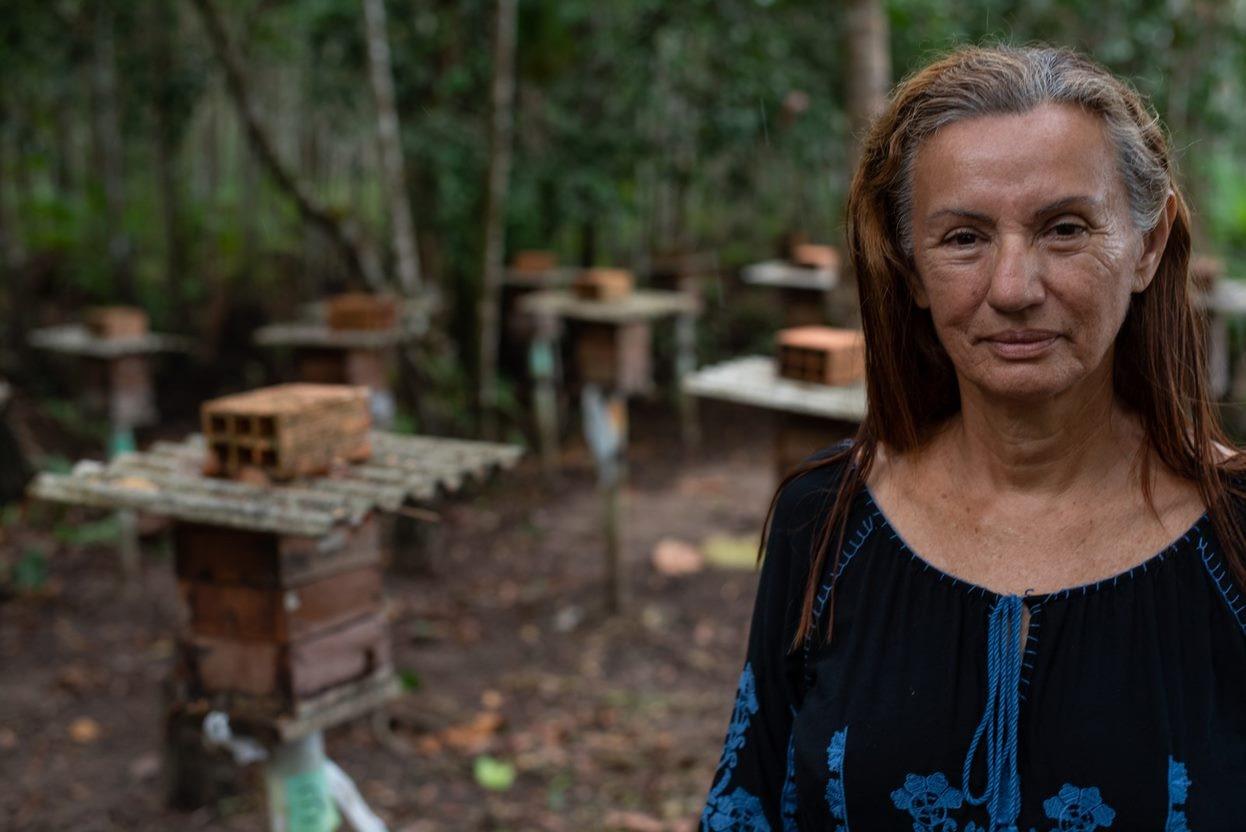
Marussa de Macedo is a defender of nature; in addition to receiving an extra income from the honey she produces, she also highlights the important labor of her honey bees in plant pollination. Credit: CIAT/S.Mattson
María Deuzuita Oliveria and Bernardo Nascimento dos Santos live very close to Marussa’s farm. They also make a living from the bee business. With a 20-cm syringe and the help of a screwdriver, Deuza, as she prefers to be called, enters slowly and reaches the core of the beehive. Tens of bees go out to attack. They do not sting, but they do express their discontent. “They get angry, because they know we are going to take their honey”, says Deuza, who tries to calm them, asking them, “tudo bem, estão com frio ou com calor?” (“Is everything all right, is it cold or hot for you?”).
In a wide corner of their farm, this married couple hosts 200 boxes of bees, which in the last harvest produced nearly 100 kg of honey. Deuza and Bernardo receive advice from their son Cleyton, who they say is an expert beekeeper and has traveled abroad to share his experience and secrets for good bee production.
Marussa and Deuza sell the honey they collect to the Peabiru Institute, which has meant a consolidated production chain. The Peabiru Institute also provides support through technical assistance, fundraising to purchase inputs, and socio-productive research and development.
The Peabiru Institute created Peabiru Produtos da Floresta to work on the marketing of this honey. The company secures the purchase of honey from the project households and other interested social groups. However, the households are not compelled to sell their honey to the company. Some households have built relationships through social networks that allow access to local markets.
According to Peabiru Produtos da Floresta, its associated producers have obtained authorization to manage their hives, which is a requirement due to the fact that bees are wild animals, and also the certification of their honey with the Seal from Federal Inspection (SIF, its initials in Portuguese), which enables them to market their honey from stingless bees in formal markets across Brazil.
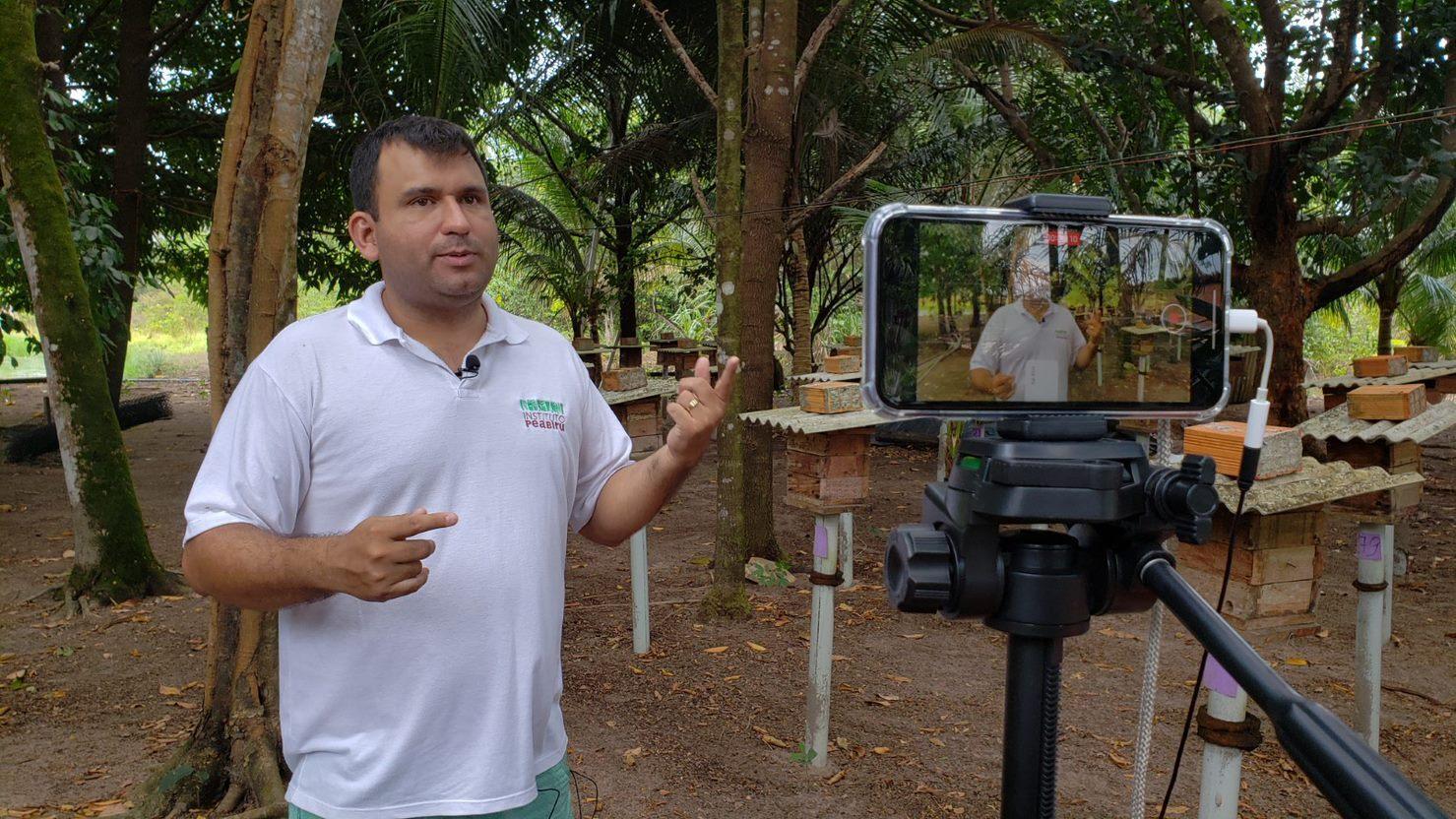
Engineer Hermógenes J. Sá de Oliveira from the Peabiru Institute during one of the field visits in the Pará region, Brazil. Credit: CIAT/S. Mattson
“At first, the main concern was increasing the number of boxes. Every household started with a small amount (less than 10 boxes on average) and today, after almost ten years, there are more than 3,000 boxes in production and another 2,000 waiting for the reproduction cycle to be completed. In other words, we have an installed capacity of 5,000 boxes”, explains Engineer Hermógenes J. Sá de Oliveira from the Peabiru Institute.
In 2017, 400kg (0.4 tons) of honey were sold. This figure reached 1.1 tons in the last harvest in 2019.
Through honey production, these communities are promoting the conservation of forests, with the pollination of native vegetation, which in turn generates other ecosystem services by producing fruits to be consumed by locals. Supporting this type of initiative has multiple benefits for local communities and the environment”.
Wendy Francesconi
Leader of the Environmental Impact and Ecosystem Services Sub-area at the Alliance of Bioversity International and CIAT.
Currently, the honey produced in the municipalities of Pará and Amapá is locally sold under the label of “Stingless-bee honey”. However, this aqueous honey, with a lower content of sugar and a bitter touch, is ready to cross borders. It will bear the seal of honey produced by one hundred percent Amazonian bees.
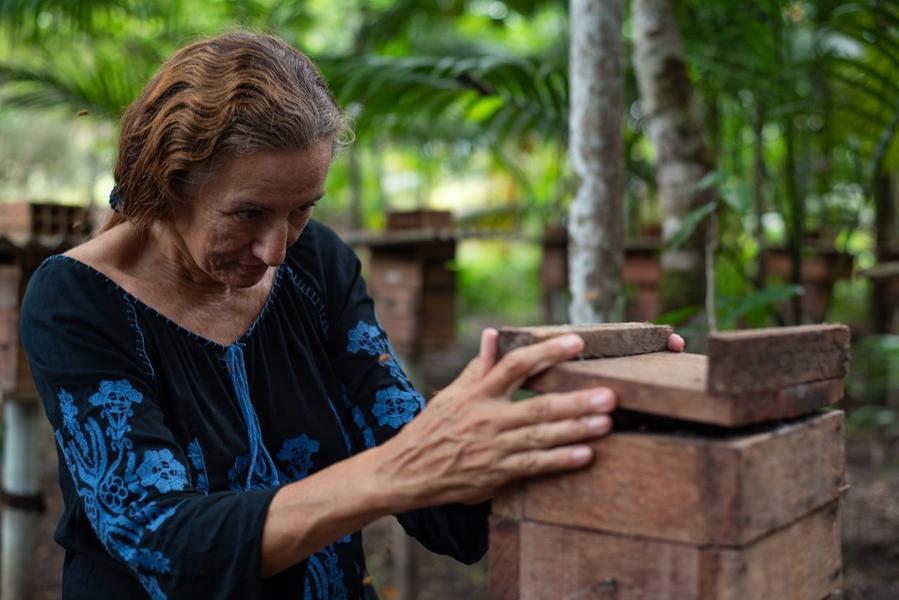
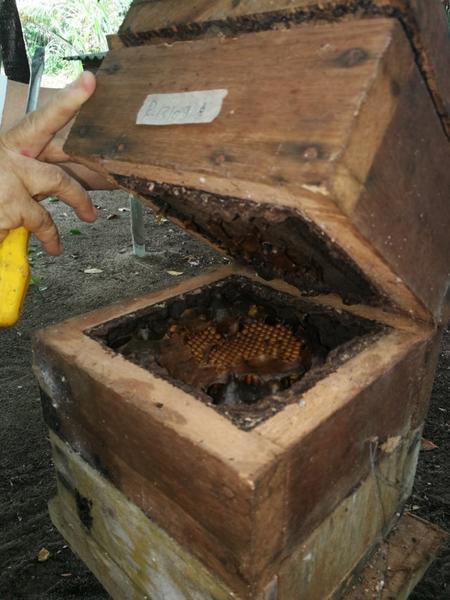
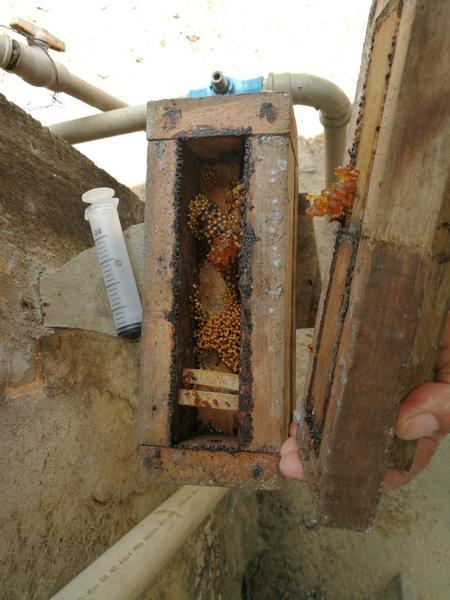
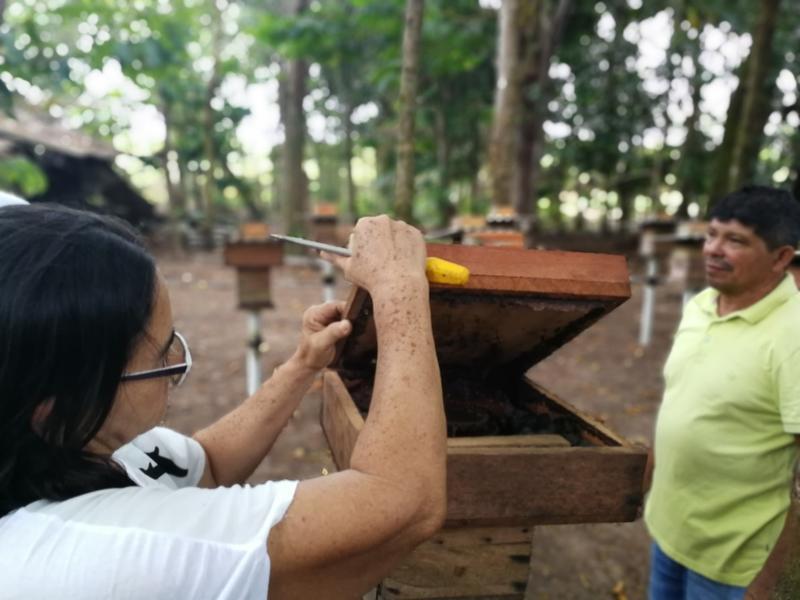
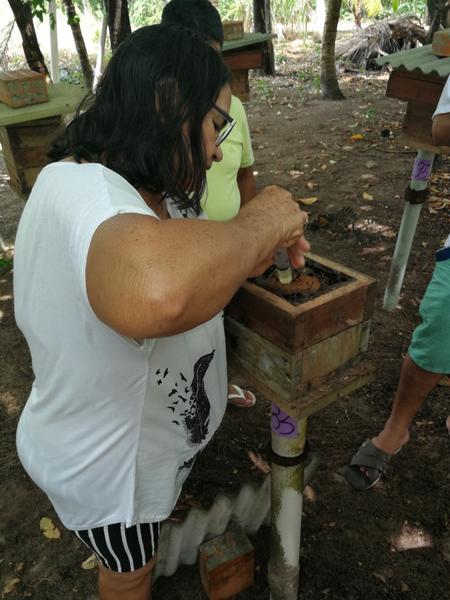
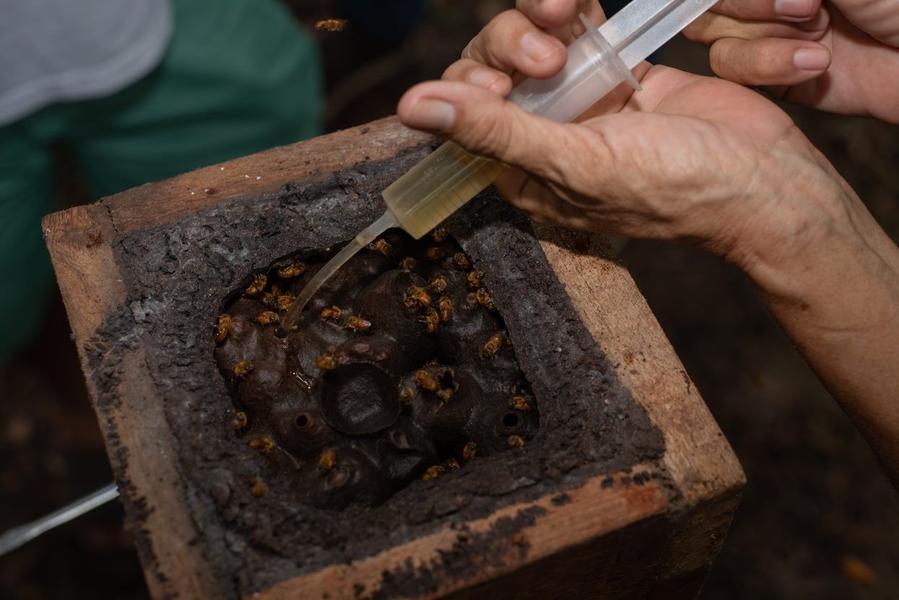
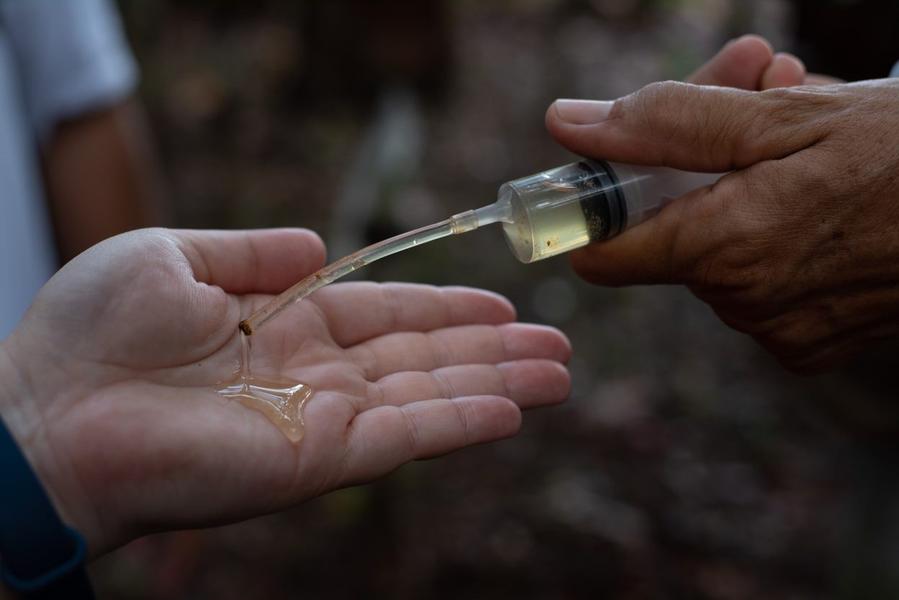
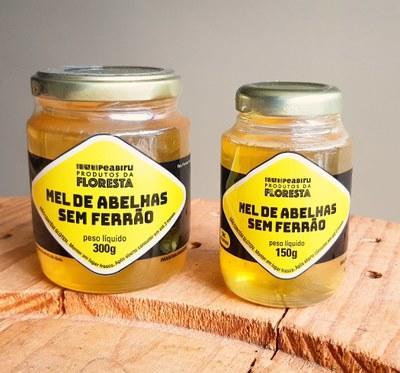
Families keeping bees in the states of Pará and Amapá sell their honey to the Peabiru Institute which, through Peabiru Produtos da Floresta, places it on the national market under the label of “Stingless-bee honey”. Credits: Alliance of Bioversity and CIAT/S. Mattson, A. Varón and the web page of Peabiru Produtos da Floresta.
A sweeter platform for innovation
The Peabiru Institute is one of the partners from the Partnership Platform for the Amazon (PPA), an initiative for collective action led by the private sector in Brazil, which seeks to find innovative, tangible, and practical solutions for sustainable development and the conservation of biodiversity, forests, and natural resources in the Amazon. This program is funded by USAID and implemented by the Alliance of Bioversity International and CIAT, with a network of local partners.
In its first year of operations, PPA supported 15 initiatives that promote the preservation, restoration, and sustainable management of 873 hectares of Amazonian rainforest. In addition, it has generated 251 instances of direct employment, 67% of which has been taken up by women. In 2019, the Program invested over US$400 thousand in sustainable initiatives.
Recently, the second cycle of the PPA Acceleration Training Program was launched, with the participation of 15 new sustainable initiatives selected from over 200 candidates, which will receive financial capital provided by important companies that are platform members.

